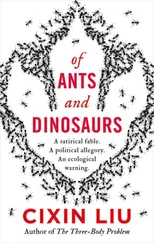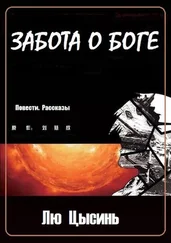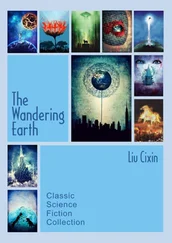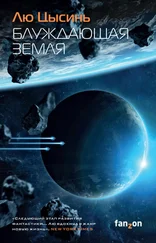Specs nodded. “Yeah. It takes a lengthy process of life experience to truly appreciate the value of life. In the mind of a child, life doesn’t occupy the same place as in an adult’s. What’s strange is that adults always associate children with kindness, peace, and other wonderful things.”
“What’s strange about that?” Huahua said, giving him a look. “In the adults’ era, children existed within their restrictions. But more importantly, children had no opportunity to take part as a collective in the cruel struggle for survival, so of course their true nature wouldn’t be exposed. Oh, for the past couple of days I’ve been reading the copy of Lord of the Flies you gave me.”
“It’s a good book. Golding was one of the few adults who really got children. It’s a shame that the others mostly judged the hearts of children using the measure of great men, [5] An inversion of an aphorism from the Zuo Zhuan, which warns against ascribing mean motives to virtuous people.
rather than recognizing our basic nature. This was their last and greatest mistake. And that mistake has introduced too many variables into the progress of history in the Supernova Era,” Specs said somberly.
The three children watched in silence for a while longer before returning to the car and setting off again.
* * *
If any adult had survived the supernova, they would have thought they were in a nightmare. When all the world’s nuclear weapons winked out in space in the final days of the Common Era, the coming children’s world was, in the adult imagination, a paradise of global harmony, a world brimming with childlike innocence and friendship, in which the children would join hands kindergarten-style and, out of their innate purity and goodness, build a wonderful new Earth. There were even suggestions that all human historical records be obliterated: “Our final hope is that children retain a decent image of us in their hearts. Should those gentle children look back on our history from their wonderful new world of peace and see all the war, power, and plunder, they will realize what sort of unreasonable, deviant creatures we are.”
But what the adults could never imagine was that less than a year into the Supernova Era, the children’s world would erupt into a world war. So grim were its rules of competition, so bloody and barbaric its methods, that they were unprecedented not only in the Common Era but throughout the entirety of human history. The Common Era had no cause to worry about its own image in the hearts of children, since what made them unreasonable in children’s eyes was their restraint and moderation, and their patently ridiculous misgivings and moral codes. International law and behavioral norms were cast aside overnight as everything was flung out into the open, and no one felt the need to hide anymore.
* * *
China’s high command was initially of divided opinion about sending troops to Antarctica to take part in the war games. The importance of the Antarctic Games was undeniable, but Xiaomeng brought up a pragmatic question: “Our own neighborhood isn’t very stable. India, for example, is only sending one division, and will retain a million-strong army inside the country. Who knows what they’re planning to do? If we want to fully participate, we’ll need to deploy a sizable proportion of army forces, plus at least two-thirds of the navy. Having two of our three fleets far from home will create a local defense vacuum. Add to that the current domestic situation, and the rising ocean levels and widespread flooding along the coast, and other potential large-scale natural disasters that need major support from the military.”
Huahua said, “Both issues are resolvable. First, India is contained by Pakistan, which will also leave a major force at home. We can launch a diplomatic offensive so that under pressure from other major powers, India will be forced to deploy forces to the games in equivalent measure to us. As for natural disasters, the absence of the military is of course detrimental, but it’s not something we can’t handle.”
Lü Gang brought up another, more unsettling question. “Our armed forces are intrinsically a force for territorial defense. They are untested and incapable of waging a long-distance, intercontinental war. Our navy, for example, is based on ideas derived from land-war theories. It’s only an offshore defensive force, not a deepwater fighting force. The majority of the ships in the fleet can go no farther than James Shoal, which for a modern navy hardly even counts as leaving the backyard. Now we’ve got to voyage to Antarctica. Before they left, the adults told us time and again not to engage in wars across continents or oceans. You’re all aware of that.”
“But the world is very different from what the adults imagined. We can’t be inflexible,” Huahua said.
Specs then laid out his own viewpoint. “If the climate continues to follow the same pattern, half of our country will be drowned or rendered uninhabitably hot. Our future is linked to Antarctica, and so a global contest for the south pole is unavoidable. When the country first contemplated embarking on Antarctic expeditions, one national leader said, ‘In the midst of pressing concerns, taking an idle move like this shows vision.’ [6] Wu Heng (1914–1999), a geologist who chaired the National Antarctic Research Committee (later the Chinese Arctic and Antarctic Administration) in the early eighties ahead of China’s first expedition, attributed this remark to Marshal Chen Yi (1901–1972).
But for us, sending the army to Antarctica is not an idle move. It is a matter of urgency, and a mistake may cost us the game.”
Huahua added, “Set aside Antarctica’s strategic significance for the time being and consider the war games on their own. The outcome may determine seating order in the children’s world.”
They all agreed that Huahua’s point could have profound implications for the future, and so the question of taking part in the Antarctic Games was settled.
* * *
News of the games spread round the country, and it brought the Candytown period to a swift end. The country awoke with a start from its two-month slumber, “as if a tray of ice cubes had been dumped under the covers,” in the words of a later historian. But careful consideration reveals that this was nothing unusual. Nothing is a more powerful stimulant to society than war.
Apart from excitement and tension, the new direction that Antarctica gave the children was a major factor in waking them out of the Candytown period. In the children’s minds, the far-off south pole, a wonderfully mysterious place, became their only hope for shaking off the boredom of life. They had faith that their army would be able to win for the Chinese children an expanse of land on the continent, where the children who settled there could start new lives. In the televised broadcast of the order mobilizing troops to Antarctica, Huahua had this to say:
“Our territory is a paper covered with the adults’ drawings. Antarctica is an empty page where we can sketch whatever we desire, and build the paradise of our dreams!”
His statement led to a serious misunderstanding. A rumor began circulating saying that the country would simultaneously execute two five-year plans, the boring one drafted by the adults for domestic use, and the glorious one the children had depicted in the virtual country for Antarctica. There they would build their parks. The idea whipped up all of the country’s children into a frenzy. For a time, the “Antarctic Park” was the hottest topic online and in the media, and the entire country focused its attention on the far-off war games. After the mobilization order was issued, the tidiness of the Inertia period returned. Children returned to their jobs and resumed work, and soon the country was humming again.
Читать дальше
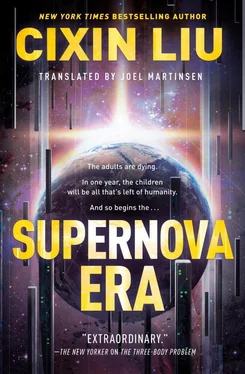
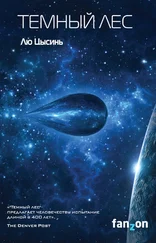
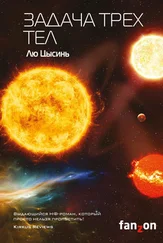
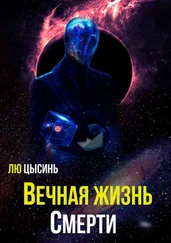
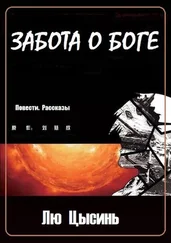
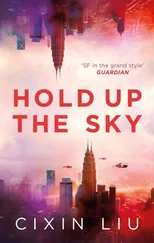
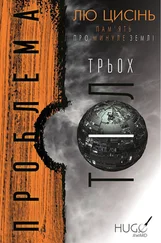
![Лю Цысинь - Эпоха сверхновой [litres]](/books/393110/lyu-cysin-epoha-sverhnovoj-litres-thumb.webp)
